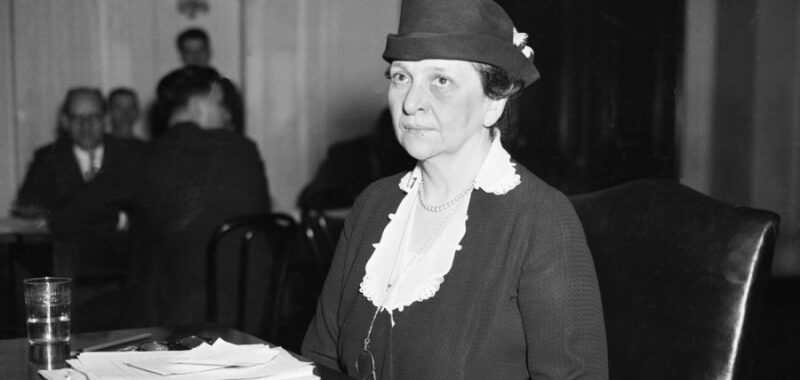
Eleanor Roosevelt, Amelia Earhart, Ruth Bader Ginsburg — the list of influential American women is long and illustrious, and ever relevant.
Not only are women’s issues front and center in our presidential politics, but female voters are poised to sway the 2024 election — one way or another. Vice President Harris, who has officially emerged as the Democratic nominee for president, has also assumed the mantle of countless women from centuries past. In other contexts, female superstars like Taylor Swift, Serena Williams and Oprah appeal to the masses in their own ways.
Chances are, the name Frances Perkins isn’t top of mind in quite the same way.
While most Americans are aware of Swift’s contributions to the music industry or Harris’s decades of public service or Ginsburg’s jurisprudence, Frances Perkins flies under the radar. And yet she is one of the most influential women in the history of our nation, whose influence can and should be an inspiration for all Americans — women and men alike.
A longtime workers’ rights advocate from Massachusetts, Perkins was the first woman ever to serve in a presidential Cabinet. While it is not groundbreaking for a woman to hold public office in 2024, it was unprecedented for one to influence White House policy in the 1930s and 1940s. And she did, becoming the fourth U.S. secretary of Labor and the longest serving one at that. Perkins was one of only four people to serve at the upper echelon of Franklin Delano Roosevelt’s administrations from beginning to end.
Perkins was the driving force behind the New Deal, creating many of the benefits and safeguards Americans count on today. Social Security, a top issue in 2024, would not exist without her. As chairwoman of FDR’s Committee on Economic Security in 1934, Perkins was involved in all aspects of the reports and hearings that ultimately resulted in the Social Security Act of 1935.
In Perkins’s words: “I came to Washington to work for God, FDR, and the millions of forgotten, plain common workingmen.” That she did. Nearly a century later, millions of working Americans still have her to thank for securing their retirements.
It has never been more important to celebrate American heroes like Perkins. Not only did she score remarkable achievements on their own merits, she achieved them despite the many constraints of her time period, as a woman working in the male-dominated field of public policy.
Perkins understood that, while elections come and go, policy endures, from Social Security to labor relations. She realized that real change requires policy change, and Perkins set out to be the change that America so desperately needed at the time.
As we all know, America still needs change — real, lasting policy change that benefits both men and women. Those striving to be today’s change, especially the youth, looking to the heroes of yesteryear, can find unique inspiration in Perkins. I certainly have, as executive director of an organization that bears her name.
That’s exactly why we are calling on the Biden administration to designate the Frances Perkins Homestead as a national monument managed by the National Park Service. Today, only 12 out of 430 national park sites were designated to honor women.
As we approach Labor Day — a day for celebrating the contributions of working Americans — we should also remember to celebrate Perkins, who fought for workers’ wellbeing and economic security. This includes banning child labor, establishing a minimum wage, and supporting a 40-hour work week.
Let us never stop striving for better. Fortunately, there is no shortage of role models for modern change-makers, as they build on the work of the past and enact further policy reforms that benefit both sexes.
The change-makers of 2024 face an uncertain world. Women’s rights are not secure in America and other parts of the world, despite centuries of progress. But current uncertainty in America is also an opportunity. As Perkins once said, “Healthy discontent keeps us alert to the changing needs of our time.”
Let’s use our “healthy discontent” for the greater good. Frances Perkins would expect nothing less.
Giovanna Gray Lockhart serves as executive director of the Frances Perkins Center in Newcastle, Maine.

